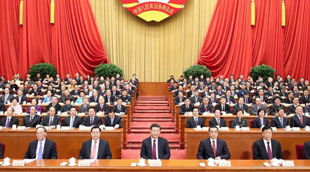
The most dangerous enemies of the West are people who often claim to be saving it, such as Orbán, France’s Marine Le Pen, the Netherlands’ Geert Wilders, Kaczyński, and Trump.
By: Ian Buruma
In 1938, Aurel Kolnai, a Hungarian philosopher of Jewish origin living in exile, published his most famous book, `The War Against the West’, an investigation of the ideas underpinning National Socialism. Kolnai seems to have read every turgid treatise – most written by third-rate thinkers – extolling the martial, self-sacrificing, blood-and-soil virtues of the Land of Heroes, and damning the materialistic, liberal democratic, bourgeois societies in the Lands of Merchants (that is to say, the West).
The Land of Heroes was of course Nazi Germany, and the West, corrupted by Jewish money and noxious cosmopolitanism, was represented by the US and Britain. You had to share the same blood to belong to the heroic German Volk, whereas citizenship in the Anglo-Saxon world was open to immigrants who agreed to abide by the law. This idea of two distinct models of citizenship goes back at least as far as the late nineteenth century, when Germany’s Kaiser Wilhelm II viewed Britain, America, and France with contempt for being mongrel societies, or indeed, in his phrase, “Jewified.”
The “West” won the war, at least in the western half of Europe; the Soviet Union won in the east. And, instead of being punished, the former enemies were educated – through cultural and political programs, richly subsidised by U.S money – to be more like Americans.
At the same time, the United States, with the help of Britain, set up a new international order after 1945, based on free trade, supranational institutions, and, in theory at least, the promotion of liberal democracy.
And yet the war of ideas never really ended. Once again, liberal ideas, internationalism, and openness to immigrants, are under fire. Only marginal groups openly espouse National Socialism (though they, too, are becoming more conspicuous). But official hostility against cultural or religious minorities is back, as is the loathing of cosmopolitan elites.
There is at least one good test of where people stand: their view of the international investor and philanthropist George Soros. Like Kolnai, Soros is a Hungarian-born Jew, and has lived his adult life in Britain and the U.S. After the collapse of the Soviet empire in the late 1980s, Soros has done more or less what U.S government agencies did after World War II. He has spent large chunks of his personal fortune on the promotion of liberal democratic values in former Communist countries. One of the many beneficiaries of his largesse is the current prime minister of Hungary, Viktor Orbán, who studied at Oxford on a Soros scholarship.
Now, biting the hand that fed him, Orbán recently called Soros’s “trans-border empire” a vicious threat to Hungary’s national identity. Soros, in his view, is a “predator” backed by “tons of money.” Orbán is a fiery advocate of “illiberal democracy,” as are other elected autocrats in former Soviet satellites. “In every country, they will want to displace Soros,” he declared in December.
 The Independent Uganda: You get the Truth we Pay the Price
The Independent Uganda: You get the Truth we Pay the Price


